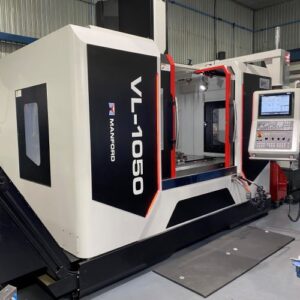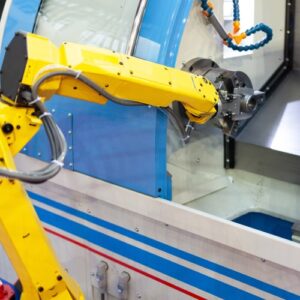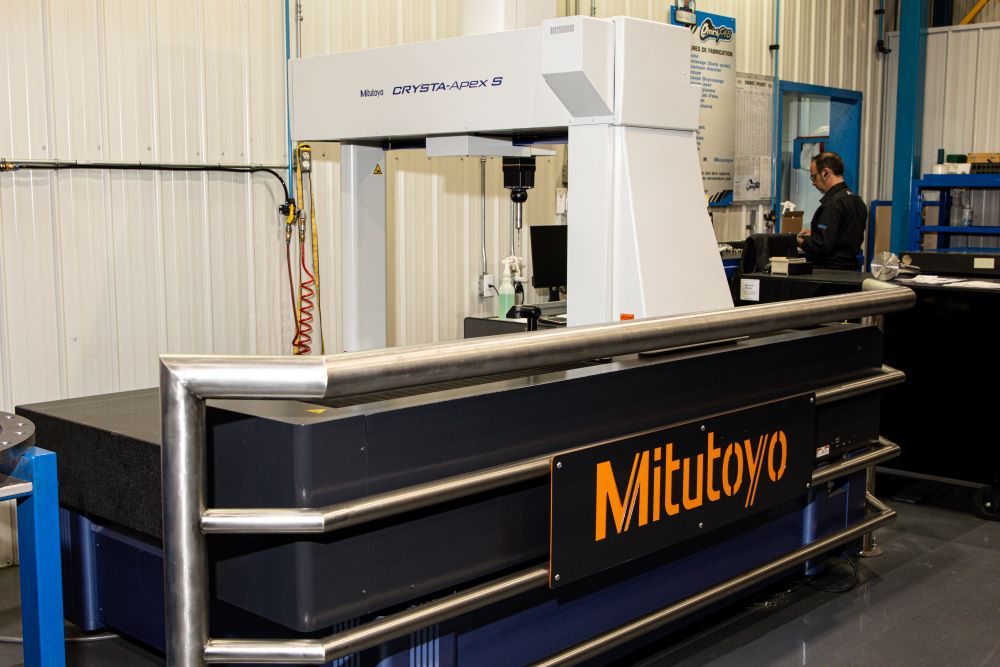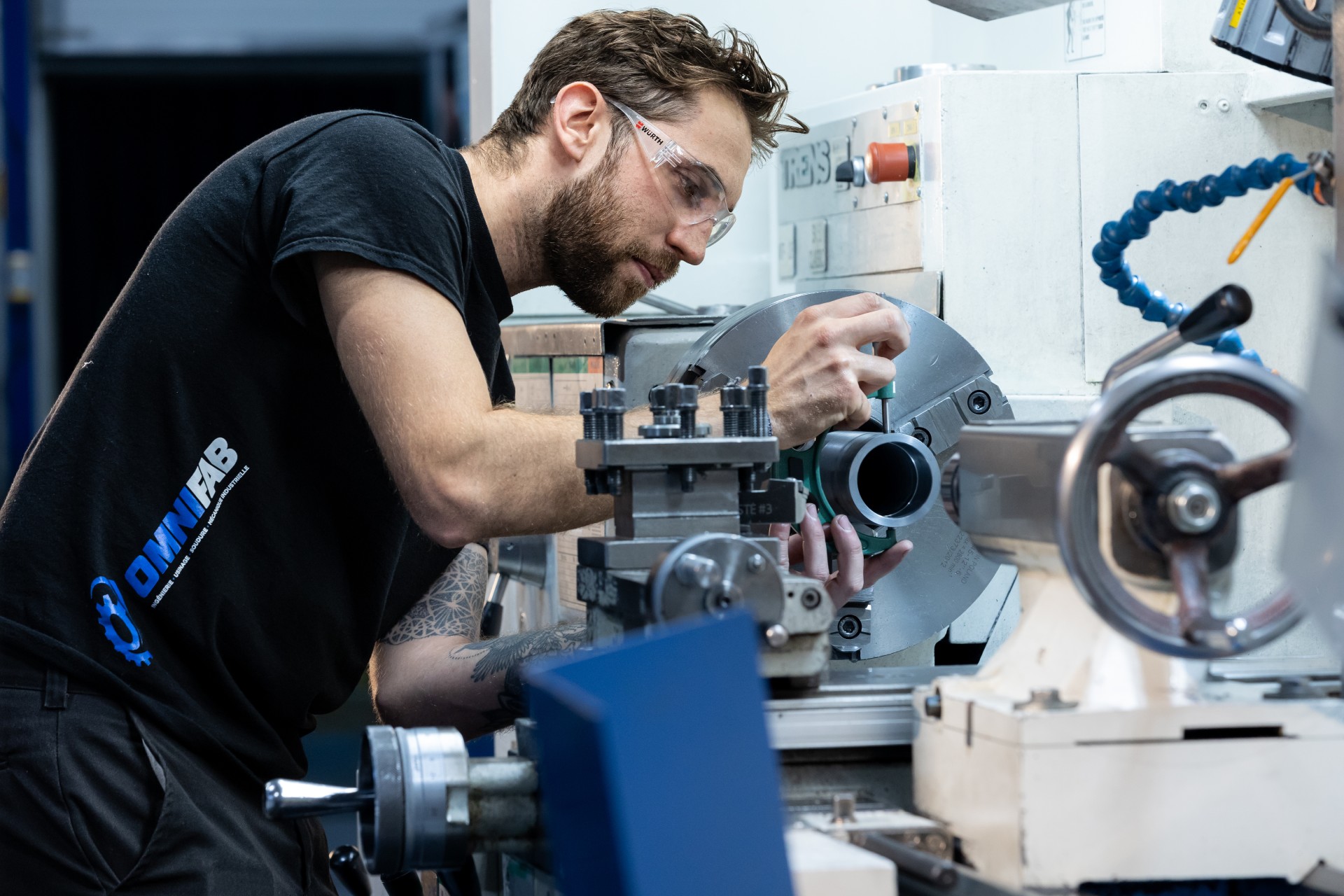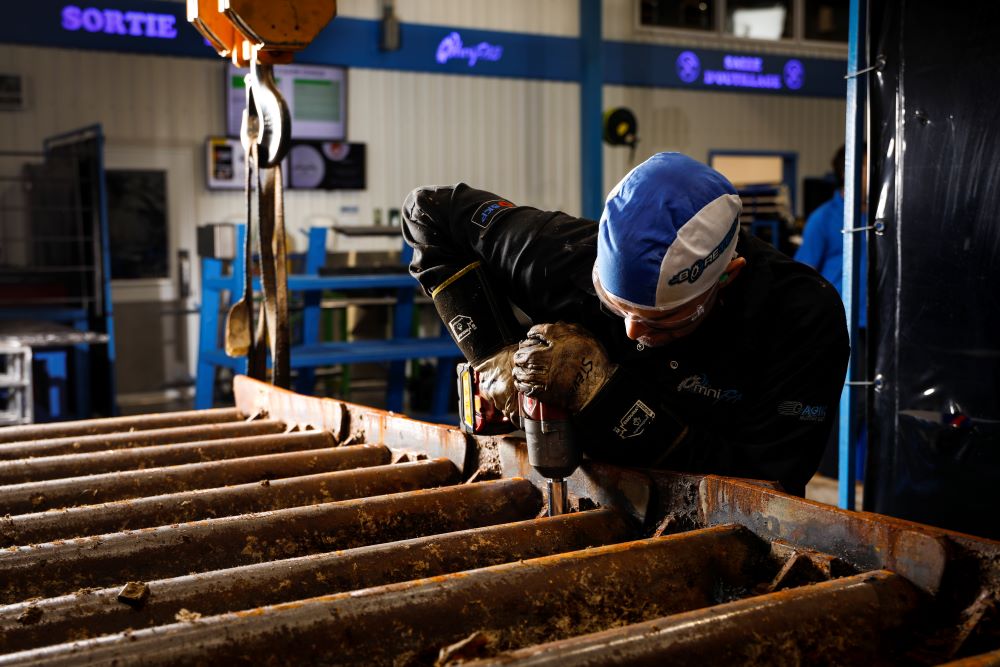It’s a common misconception that industrial machine components are made entirely of metal. However, many of them are actually made of plastic for a variety of reasons. In this article, you’ll discover why choosing plastic parts for your industrial machinery can be beneficial.
First, however, we’ll explain what plastic machining is all about.
What is plastic machining?
Plastic machining is the process of producing plastic parts by removing material using cutting tools. The principle is usually the same as metal machining. It’s a manufacturing process that produces plastic parts with precise dimensions, complex shapes and fine surface finishes.
Plastic machining is used in a variety of industries, including automotive, aerospace, electronics, medical and food.
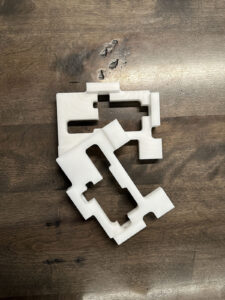
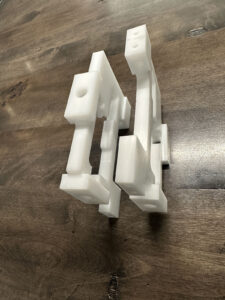
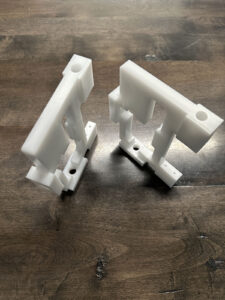

Plastic Machining Processes
When it comes to machining, whether it’s plastic or metal, there are a number of different operations to achieve the precise result you’re looking for. Please note that the same steps are used for metal and plastic, just as the same machines are used to cut them.
Milling
Plastic milling is the removal of material chips using a rotating cutter. This method is commonly used to create contours, pockets, chamfers and other features on plastic parts.
Turning
Plastic turning is similar to metal turning in that the plastic part is clamped on a lathe and rotated while the cutting tool removes material to create cylindrical, conical or other shapes.
Drilling
Drilling is how we make holes in plastic parts. Special drills adapted to plastic are used to obtain precise, clean holes.
Sawing
Sawing is used to cut plastic parts along specific lines. Band saws or circular saws can be used for this operation.
Why choose plastic over metal?
When it comes to machining, there are many factors to consider when choosing the ideal material for a project. Metal parts have long been the norm, but plastic parts are rapidly gaining ground. Typically, plastic parts are preferred when it comes to consumable products. In fact, because metal parts are stronger and more expensive to produce, it’s not uncommon to choose plastic friction parts instead.
Here are just a few of the advantages of using plastic parts over metal parts.
1. Cost Effectiveness
It’s no secret that metal parts are expensive to produce and replace. In recent years, the cost of metal has skyrocketed and this trend will continue. Plastic parts are cheaper to produce and can be produced quickly and in large quantities with little impact on the wallet.
2. Design Flexibility
Plastics offer more design flexibility than metals. They can be molded into a variety of complex shapes, which can be advantageous for specific aesthetic or functional designs.
3. Excellent Insulator
Plastics are generally electrical insulators, making them suitable for applications requiring electrical insulation properties, unlike metals, which are conductive.
Our team of experts looks forward to your plastic machining orders!
Plastics machined at Omnifab
In our machine shop we machine both metal and plastic. Although many types of plastics can be machined, we work primarily with four:
-
Teflon
Le terme “Téflon” fait généralement référence à un type spécifique de matériau plastique connu sous le nom de polytétrafluoroéthylène (PTFE). Il est extrêmement résistant aux produits chimiques, possède une excellente stabilité thermique et est connu pour sa faible friction. D’ailleurs, grâce à celle-ci, il est auto-lubrifiant.
-
UHMW
UHMW plastic, also known as ultra-high molecular weight polyethylene, is a type of polyethylene characterized by the presence of long linear molecular chains. It is a particularly popular choice for industrial applications, not least because of its high wear resistance. In addition, it is often used in applications where abrasion resistance is critical, such as machine components, chain guides, conveyor rails, and so on. This type of plastic also has low friction, high chemical resistance, high impact resistance and is very easy to machine.
-
MOS2
Le plastique MOS2 fait généralement référence à un plastique contenant du disulfure de molybdène (MoS2) sous forme de poudre ou de particules intégrées dans la matrice plastique. Le disulfure de molybdène est un lubrifiant solide qui offre des propriétés de friction réduite et améliore la résistance à l’usure du matériau plastique.
-
Acetal
Acetal, also known as polyoxymethylene (POM), is a thermoplastic polymer belonging to the polyoxymethylene family. It was developed in the 1950s and is widely used in a variety of applications due to its excellent mechanical properties and chemical resistance.
With CNC machining, we’re ready to meet your needs
At Omnifab, we have no limits on part size. Just as we do with metal parts, we want to provide our customers with exactly the finished product they are looking for to meet their immediate and future needs.
Our large and diverse inventory allows us to offer fast service and exceptional lead times. Don’t hesitate to contact our team to learn more about this service. We’ll be happy to answer your questions and suggest solutions.

